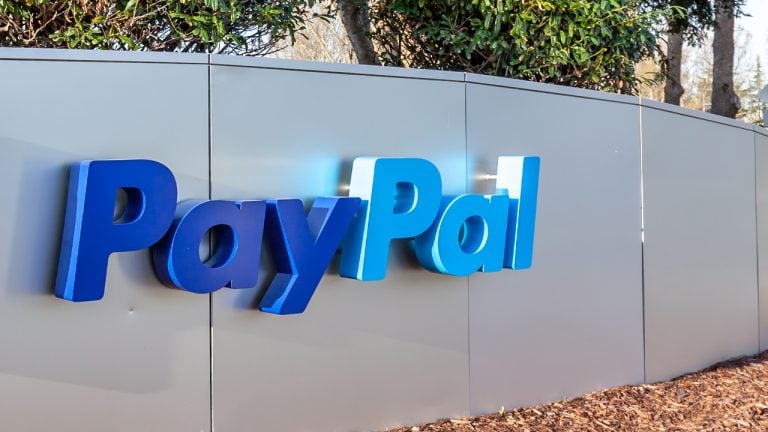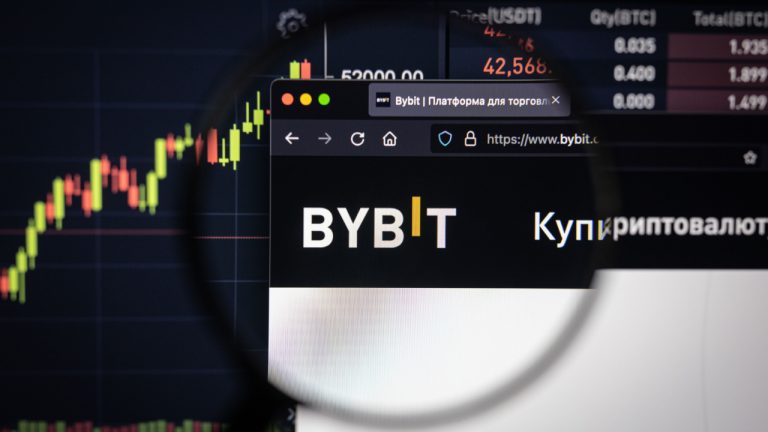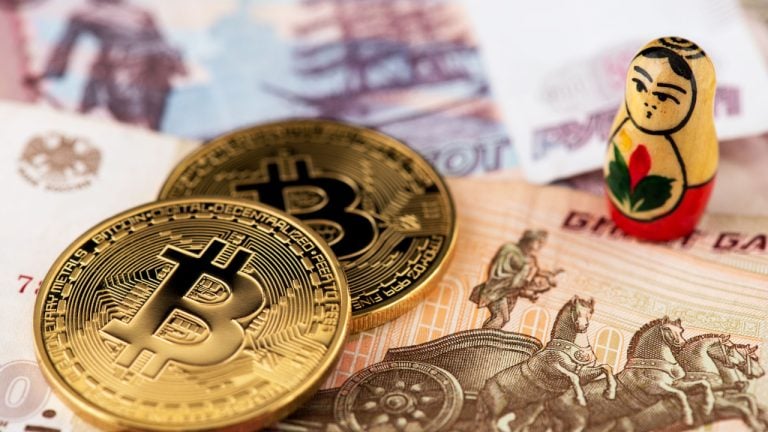
Advanced crypto laundering techniques continue to challenge law enforcement and crypto-related services, as highlighted in a new Chainalysis report on money laundering.
According to a report by Chainalysis, sophisticated money laundering techniques are presenting a significant challenge for law enforcement agencies and cryptocurrency service providers.
On July 11, the blockchain analysis firm Chainalysis released its “Money Laundering and Cryptocurrency Report,” highlighting the trend of billions flowing through the crypto ecosystem from illicit wallets to conversion services every month.
The report shows that these flows utilize advanced methods to obscure the origins and movement of these funds.
 The majority of crypto companies attracted by the once favorable Estonian regulations have either abandoned or lost their licenses. According to the latest numbers released by the Baltic nation’s anti-money laundering bureau, only 100 businesses are currently authorized to provide digital-asset services. Most Estonian Licenses for Provision of Crypto-Related Services Expire A total of 389 […]
The majority of crypto companies attracted by the once favorable Estonian regulations have either abandoned or lost their licenses. According to the latest numbers released by the Baltic nation’s anti-money laundering bureau, only 100 businesses are currently authorized to provide digital-asset services. Most Estonian Licenses for Provision of Crypto-Related Services Expire A total of 389 […] During the first week of 2023, payment service giant Paypal said it was exploring the launch of a stablecoin. At the time, an executive at Paypal stated that if the company moved forward, it would work closely with financial regulators. However, on Feb. 10, a source noted that Paypal has put the concept on hold […]
During the first week of 2023, payment service giant Paypal said it was exploring the launch of a stablecoin. At the time, an executive at Paypal stated that if the company moved forward, it would work closely with financial regulators. However, on Feb. 10, a source noted that Paypal has put the concept on hold […] Cryptocurrency exchange Bybit has no intention to introduce restrictions for Russian traders, despite a recent reminder by the Monetary Authority of Singapore (MAS) about the obligations of crypto providers in that respect. According to a crypto media report, the platform shared its position in correspondence with partners. Bybit Reportedly Vows to ‘Not Discriminate Against Crypto […]
Cryptocurrency exchange Bybit has no intention to introduce restrictions for Russian traders, despite a recent reminder by the Monetary Authority of Singapore (MAS) about the obligations of crypto providers in that respect. According to a crypto media report, the platform shared its position in correspondence with partners. Bybit Reportedly Vows to ‘Not Discriminate Against Crypto […] Digital asset manager Bakkt Holdings, Inc., announced on Thursday that the company has acquired the firm Apex Crypto from Apex Fintech Solutions. Bakkt detailed that the acquisition of the turnkey crypto platform aims to “bolster Bakkt’s cryptocurrency product offering and expand its footprint into additional client verticals.” Bakkt to Expand Client Verticals With Different Offerings […]
Digital asset manager Bakkt Holdings, Inc., announced on Thursday that the company has acquired the firm Apex Crypto from Apex Fintech Solutions. Bakkt detailed that the acquisition of the turnkey crypto platform aims to “bolster Bakkt’s cryptocurrency product offering and expand its footprint into additional client verticals.” Bakkt to Expand Client Verticals With Different Offerings […] Financial authorities in Singapore have proposed new regulations designed to protect consumers from risks associated with cryptocurrency investment and trading. The measures, which also aim to expand regulations for stablecoins, will be discussed with the industry before their adoption. Singapore Prepares to Tighten Cryptocurrency Regulations, Limit Public Access to Digital Assets The Monetary Authority of […]
Financial authorities in Singapore have proposed new regulations designed to protect consumers from risks associated with cryptocurrency investment and trading. The measures, which also aim to expand regulations for stablecoins, will be discussed with the industry before their adoption. Singapore Prepares to Tighten Cryptocurrency Regulations, Limit Public Access to Digital Assets The Monetary Authority of […] Cryptocurrency exchange Binance will be able to offer services for digital assets in Cyprus as the platform is now registered with the country’s securities regulator. The news comes after the company obtained similar approvals in several other European jurisdictions. Global Exchange Binance to Comply With Cyprus Crypto Regulations Binance, the world’s leading crypto exchange in […]
Cryptocurrency exchange Binance will be able to offer services for digital assets in Cyprus as the platform is now registered with the country’s securities regulator. The news comes after the company obtained similar approvals in several other European jurisdictions. Global Exchange Binance to Comply With Cyprus Crypto Regulations Binance, the world’s leading crypto exchange in […]
BNY Mellon CEO Robin Vince pointed to a survey earlier this year which found 91% of institutional asset managers were interested in investing in tokenized assets.
BNY Mellon CEO Robin Vince says “client demand” was the “tipping point” that ultimately led to the bank’s launch of institutional-focused crypto services last week.
BNY Mellon, America’s oldest bank, became the first large bank in the country to offer custody of institutional clients’ Ether (ETH) and Bitcoin (BTC) on Oct. 11.
In an Oct. 17 conference call following the release of its third quarter earnings, Vince pointed to a survey commissioned by the bank this year, which found that 91% of large institutional asset managers, asset owners and hedge funds were interested in investing in some type of tokenized asset within the next few years.
“About 40% of them already hold crypto in their portfolios. About 75% of them are actively investing or exploring investing in digital assets,” he said, adding:
“And so what we heard from our clients is they want institutional grade solutions in the space.”
The new custody service was launched last week, allowing select institutional clients to hold and transfer Bitcoin and Ether on the same platform they manage their stocks and bonds.
Vince said that the digital asset custody solution was not created “just for the purpose” of custody crypto and that the bank sees it “as the beginning of a much broader journey.”
During the call, Vince said he envisioned the tokenization of “all kinds of assets and currencies,” including traditional financial assets as well as assets that “haven't been as easy to manage in the financial system,” commenting:
“Some of those things could be much better managed using tokens.”
Examples he mentioned included commodities, real estate, forests, and certificates relating to environmental, social and governance issues.
However, the BNY Mellon CEO said it could be years or even decades before the industry could see full adoption of tokenized assets.
“I'm not going to put an exact time scale on it [...] But we thought that with a longer-term view this was an important space," he said.
Related: BNY Mellon, America’s oldest bank, launches crypto services
He also noted that they’re not spending a “ton” of money on the space, but will instead be investing in “smart” places in the ecosystem.
The bank, which has $43 trillion in assets under management as of 2022, had been playing with the idea of allowing clients to transfer and issue Bitcoin and other cryptocurrencies as early as February 2021 during the bull run for the asset class.
 Complying with the latest EU sanctions targeting Russia, well-known cryptocurrency platforms like Localbitcoins, Blockchain.com, and Crypto.com have started to restrict or terminate services for Russian accounts. The moves follow the adoption of new European penalties in response to Moscow’s military escalation in Ukraine. Major Crypto Platforms Conform to EU Measures, Restrict Services for Russian Users […]
Complying with the latest EU sanctions targeting Russia, well-known cryptocurrency platforms like Localbitcoins, Blockchain.com, and Crypto.com have started to restrict or terminate services for Russian accounts. The moves follow the adoption of new European penalties in response to Moscow’s military escalation in Ukraine. Major Crypto Platforms Conform to EU Measures, Restrict Services for Russian Users […] A list of crypto exchanges, including global platforms, have not introduced new restrictions on Russian users after the EU’s most recent sanctions round, Russian crypto media reported. The latest European penalties target an array of crypto-related services to increase pressure on Russia amid an escalating conflict in Ukraine. Major Exchanges Continue to Work in Russia […]
A list of crypto exchanges, including global platforms, have not introduced new restrictions on Russian users after the EU’s most recent sanctions round, Russian crypto media reported. The latest European penalties target an array of crypto-related services to increase pressure on Russia amid an escalating conflict in Ukraine. Major Exchanges Continue to Work in Russia […]